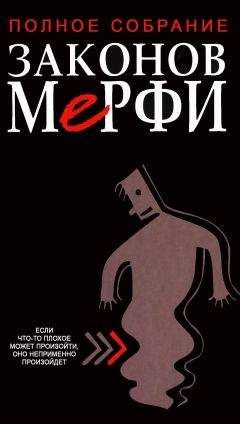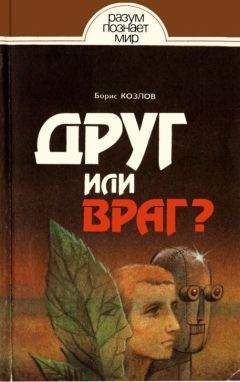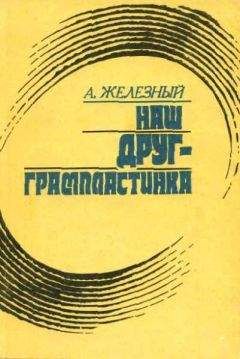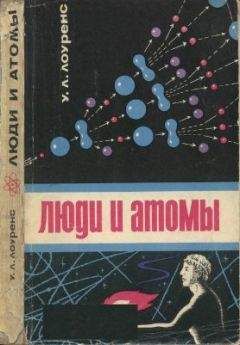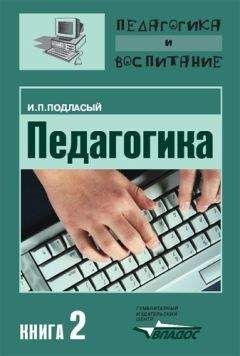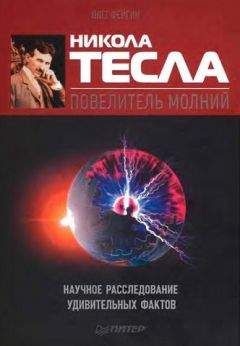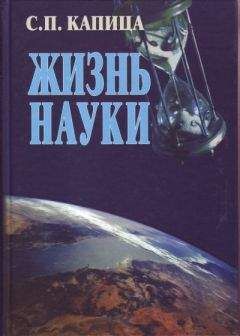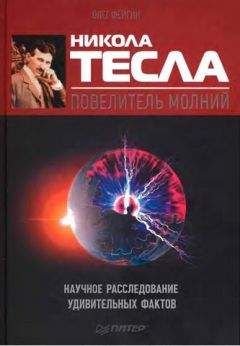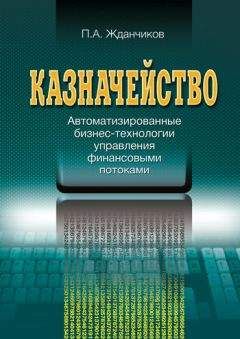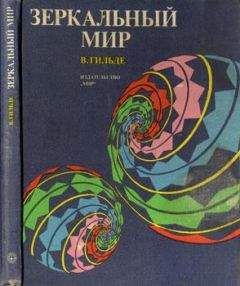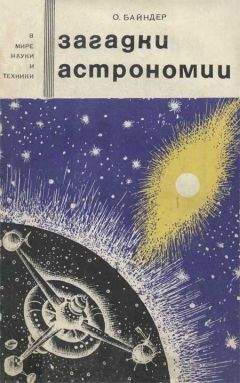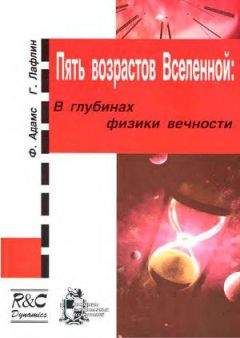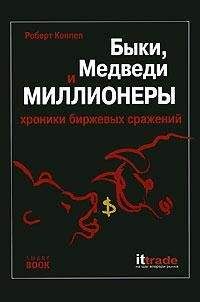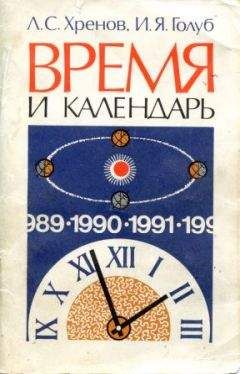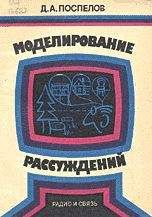Говард Рейнгольд - Умная толпа
Скачивание начинается... Если скачивание не началось автоматически, пожалуйста нажмите на эту ссылку.
Жалоба
Напишите нам, и мы в срочном порядке примем меры.
Описание книги "Умная толпа"
Описание и краткое содержание "Умная толпа" читать бесплатно онлайн.
Мобильная связь и повсеместная компьютеризация уже начинают менять способы общения, трудовой и творческой деятельности, торговли, управления. Информационные технологии и их многообразное воздействие на различные сферы жизни общества — такова тема книги, предлагаемой вниманию читателей. Через десять лет, утверждает автор на основании многочисленных исследований, наблюдений и интервью, основные места средоточия населения Земли будут наводнены микросхемами, способными общаться друг с другом. Люди, оснащенные такими устройствами, составят «умные толпы», и их общение обретет невиданные прежде формы и возможности.
Для широкого круга читателей.
14. Graeme Wearden, «Can 3G Phones Capture Criminals?» ZDNet News, 22 March 2002, «http://zdnet.com.com/2100-1105-867005.html» (27 March 2002).
15. Gary T. Marx, «The Surveillance Society: The Threat of 1984-Style Techniques», The Futurist, June 1985, 21-26.
16. Gary T Marx, Undercover: Police Surveillance in America (Berkeley: University of California Press, 1988).
17. Michel Foucault, Power/Knowledge: Selected Interviews and Other Writings, 1972-1977, ed. Colin Gordon (New York: Pantheon, 1980), 39.
18. Michel Foucault, Discipline and Punish. The Birth of the Prison (London: Tavistock, 1977), 27.
19. Michel Foucault, «Panopticism», in Discipline and Punish: The Birth of the Prison, trans. Alan Sheridan (New York: Vintage Books, 1995), 195-228.
20. Winner, «Whatever Happened to the Electronic Cottage?»
21. Jan English-Leuck et al, The Silicon Valley Cultures Project, «http://www.sjsu.edu/depts/anthropology/svcp/» (23 March 2002), quoted in Winner.
22. Byron Reeves and Clifford Nass, The Media Equation: How People Treat Computers, Television, and New Media Like Real People and Places (Cambridge, U. K.: Cambridge University Press, 1996).
23. D. C, Dryer, С Eisbach, and W S. Ark, «At What Cost Pervasive? A Social Computing View of Mobile Computing Systems», IBM Systems Journal 38, 4 (1999), «http://www.research.ibm.com/journal/sj/384/ dryer.html» (29 March 2002).
24. Mark Pesce, The Playful World. How Technology Is Transforming Our Imagination (New York: Ballantine, 2000). See also: The Playful World, «http://www.playfulworld.com/» (23 March 2002).
25. Leslie Haddon, «The Social Consequences of Mobile Telephony: Framing Questions», в отчете The Social Consequences of Mobile Telephony: The Proceedings from a Seminar About Society, Mobile Telephony, and Children, Telenor R amp;D N 38/2000, ed. Rich Ling and Kristin Trane, 26 June 2000, 2-6, «http://www.telenor.no/fou/prosjekter/Fremtidens_Brakere/seminarer/mobilpresentasjoner/Proceedings%20_FoU%20notat_.pdf» (31 January 2002).
26. Leopoldina Fortunati, «The Mobile Phone: New Social Categories and Relations», in The Social Consequences of Mobile Telephony: The Proceedings from a Seminar About Society, Mobile Telephony, and Children, Telenor R amp;D N 38/2000, ed. Rich Ling and Kristin Trane, 26 June 2000, 9-12, «http://www.teIenor.no/fou/prosjekter/Fremtidens_Brukere/seminarer/mobilpresentasjoner/Proceedings%20_FoU%20notat_.pdf» (31 January 2002).
27. Rich Ling and Birgitte Yttri, «Hyper-Coordination via Mobile Phones in Norway», in Perpetual Contact: Mobile Communication, Prj. vate Talk, and Public Performance, ed. Mark Aakhus and James Katz (Cambridge: Cambridge University Press, 2002).
28. Pasi Maenpaa, «Mobile Communication as a Way of Urban Life» in Ordinary Consumption, ed. Allen Warde and Jukka Gronow (London' Routledge, 2001), 107.
29. Barry Wellman, «Physical Place and CyberPlace: The Rise of Personalized Networking», International Journal of Urban and Regional Research 25, 2 (2001): 227-252, «http://www.chass.utoronto.ca/~wellman/ publications/individualism/ijurr3al.htm» (29 March 2002).
30. Barry Wellman, «Little Boxes, Glocalization, and Networked Individualism», forth coming in Digital Cities II: Computational and Sociological Approaches, ed. Makoto Tanabe, Peter van den Besselaar, and Tom Ishida. Springer Lecture Notes in Computer Science: The State of the Art Series (Berlin: SpringerVerlag, 2002).
31. Leopoldina Fortunati, «The Ambiguous Image of the Mobile Phone», in Communications on the Move: The Experience of Mobile Telephony in the 1990s, ed. L. Haddon, COST248 Report, Telia, Farsta.
32. Wellman, «Little Boxes, Glocalization, and Networked Individualism».
33. Haddon, «The Social Consequences of Mobile Telephony».
34. Fortunati, «The Mobile Phone».
35. T. W Adorno and M. Horkheimer, «The Culture Industry: Enlightenment as Mass Deception», в книге The Dialectic of Enlightenment, trans. John Cumming (New York: Herder and Herder, 1972) [на рус. яз.: Культуриндустрия. Просвещение как обман масс // Макс Хоркхай-мер, Теодор В. Адорно, Диалектика просвещения. Философские фрагменты / Пер. с нем. М. Кузнецова. — М.-СПб.: Медиум, Ювен-та, 1997, с. 149-209].
36. Jean BaudriUard, «Simulacra and Simulations», in Jean Baudril-lard, Selected Writings, ed. Mark Poster (Stanford: Stanford University Press, 1988), 166-184.
37. Neil Postman, Amusing Ourselves to Death: Public Discourse in the Age of Show Business (New York: Viking, 1985).
38. Robert McChesney, Rich Media, Poor Democracy: Communication Politics in Dubious Times (Champaign: University of Illinois Press, 1999).
39. John Leyden, «NTT DoCoMo Pays $217m to Put Spam Back in the Can», The Register, 7 апреля 2001, «http://www.theregister.co.uk/ content/5/20182.html» (18 March 2002).
40. Harold Lasswell, in Jacques Ellul, The Technological Society, trans. J. Wilkinson (New York: Knopf, 1964).
41. Lewis Mumford, The Myth of the Machine (New York: Harcourt, Brace, amp; World, 1966).
42. Joseph Weizenbaum, Computer Power and Human Reason (San Francisco: W. H. Freeman, 1976).
43. Martin Heidegger, «The Question Concerning Technology», в книге Martin Heidegger Basic Writings, ed. David Krell (New York: Harper amp; Row, 1977). [на рус. яз.: Вопрос о технике // Хайдеггер М. «Время и бытие: статьи и выступления» / Пер. с нем. и комм. В. Бибихина. — М.: Республика, 1993. — С. 221-238. («Мыслители XX века»)].
44. N. Katherine Hayles, How We Became Posthuman: Virtual Bodies in Cybernetics, Literature, and Informatics (Chicago: University of Chicago Press, 1999).
45. Mark Dery, Escape Velocity Cyberculture at the End of the Century (New York: Grove Press, 1996).
46. Raymond Kurzweil, The Age of Spiritual Machines: When Computers Exceed Human Intelligence (London: Penguin Viking, 1999).
47. Jeremy Lovell, «Briton Wires Nervous System to a Computer», Reuters, 22 March 2002, «http://story.news.yahoo.com/news7tmpH story amp;cid=581 amp;u=/nm/20020322/tc_nm/britain_cybernetics_dc_2» (27 March 2002).
48. Marshall Berman, All That Is Solid Melts into Air: The Experience of Modernity (New York: Penguin Books, 1982).
49. Alvin Toffler, The Third Wave (New York: William Morrow, 1980).
50. Lawrence Lessig, The Future of Ideas: The Fate of the Commons in a Connected World (New York: Random House, 2001).
51. С. М. Kornbluth, «The Marching Morons», Galaxy, April 1951.
52. Sean Griffin, «Walt Disney Programs», «http://www.museurn. tv/ archives/etv/W/htmlW/waltdisneyp/waltdisneyp.htm».
53. Jack Valenti, «Home Recording of Copyrighted Works», Hearings Before Subcommittee on Courts, Civil Liberties, and the Administration of Justice of the Committee on the Judiciary, House of Representatives, Ninety-Seventh Congress, 12, 13, 14 April, 24 June, 22 и 23 September 1982, «http://cryptome.org/hrcwhear.htm».
54. Electronic Frontier Foundation, «Consensus at Lawyerpoint: Being a True Account of the Undertakings of the Broadcast Protection Discussion Group», «http://bpdg. blogs. eff.org».
55. Motion Picture Association of America, «Content Protection Status Report», «http://judiciary.senate.gov/special/content_protection. pdf».
56. Electronic Frontier Foundation, «Hollywood Wants to Plug the Analog Hole», «http://bpdg.blogs.eff.org/archives/000113».
57. Dan Gillmor, «Bleak Future Looms If You Don't Take a Stand», Mercury News, 23 March 2002, «http://www.siliconvalley.com/mld/ siliconvalley/2922052.htm» (27 March 2002).
58. Yochai Benkler, «From Consumers to Users: Shifting the Deeper Structures of Regulation Toward Sustainable Commons and User Access», Federal Communications Law Journal 52, 3 (2000): 561, «http:// www.law.indiana.edu/fclj/pubs/v52/no3/benklerl.pdf» (23 March 2002).
59. Steven Johnson, Emergence. The Connected Lives of Ants, Brains Cities, and Software (New York: Scribner, 2001), 100.
60. Anthony M. Townsend, «Life in the Real-Time City: Mobile Telephones and Urban Metabolism», Journal of Urban Technology 7, 2 (August 2000), 87.
61. Jeff Goldman, «The City Transformed», TheFeature com,
22 November 2001, «http://www.thefeature.com/index.jsp?url-article.jsp?pageid=13458» (27 March 2002).
62. Townsend, «Life in the Real-Time City», 104.
63. William J. Mitchell, City of Bits Space, Place, and the Info-bahn (Cambridge: MIT Press, 1995). See also: The City of Bits Web Site, «http://mitpress2.mit.edu/e-books/City_of_Bits/index.html» (27 March 2002).
64. William J. Mitchell, «The Revenge of Place», in report Proceedings, Third International Space Syntax Symposium, Atlanta, 2001, «http:// undertow.arch.gatech.edu/homepages/3sss/papers_pdf/01_mitchell.pdf» (29 March 2002).
65. Andy Clark, «Natural-Born Cyborgs?» in Cognitive Technology Instruments of Mind, Proceedings of the 4th International Conference on Cognitive Technology, ed. M. Benyon, С Nehaniv, and K. Dautenhahn (Berlin: Springer-Verlag, 2001), 17.
66. Howard Rheingold, Tools for Thought (New York: Simon amp; Schuster, 1985).
67. Vannevar Bush, «As We May Think», Atlantic Monthly, July 1945.
68. Rheingold, Tools for Thought.
69. J. С R. Licklider, «Man-Computer Symbiosis», IRE Transactions on Human Factors in Electronics HFE-1, March 1960, 4. Reprinted in In Memoriam. J. С R. Licklider, 1915-1990 (Palo Alto: Digital Systems Research Center, 1990), 1.
70. M. Mitchell Waldrop, The Dream Machine: J. С R. Licklider and the Revolution That Made Computing Personal (New York: Viking, 2001).
71. D. С Engelbart, «A Conceptual Framework for the Augmentation of Man's Intellect», in Vistas in Information Handling, vol. 1, ed. D. W. Howerton and D. С Weeks (Washington, D. C: Spartan Books, 1963), 1-29.
72. Wright, Nonzero.
Подписывайтесь на наши страницы в социальных сетях.
Будьте в курсе последних книжных новинок, комментируйте, обсуждайте. Мы ждём Вас!
Похожие книги на "Умная толпа"
Книги похожие на "Умная толпа" читать онлайн или скачать бесплатно полные версии.
Мы рекомендуем Вам зарегистрироваться либо войти на сайт под своим именем.
Отзывы о "Говард Рейнгольд - Умная толпа"
Отзывы читателей о книге "Умная толпа", комментарии и мнения людей о произведении.





